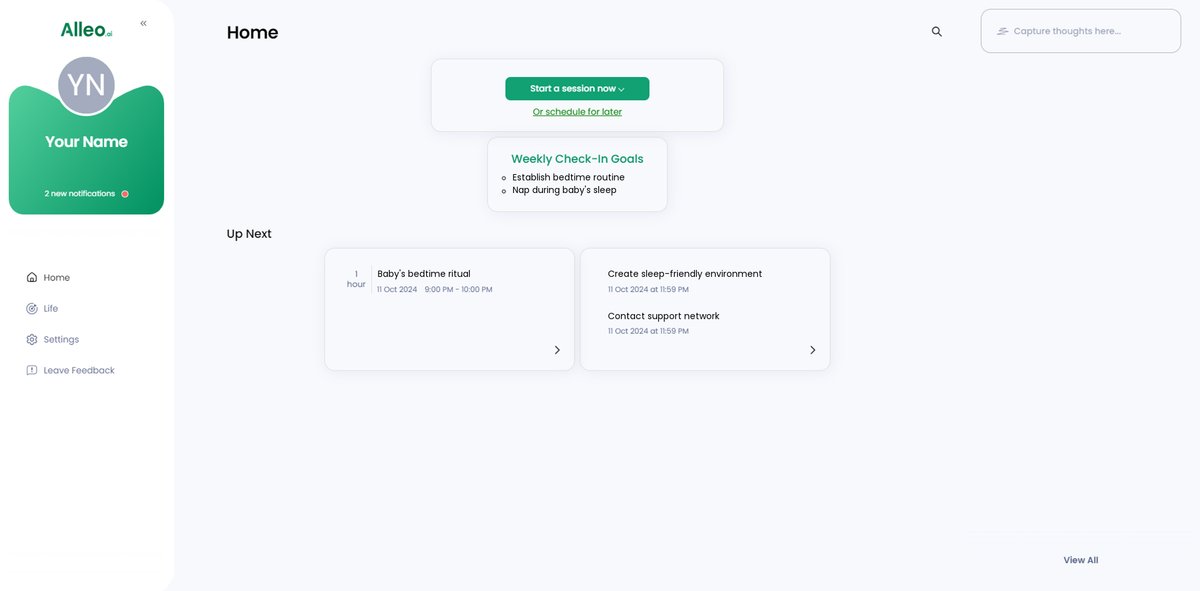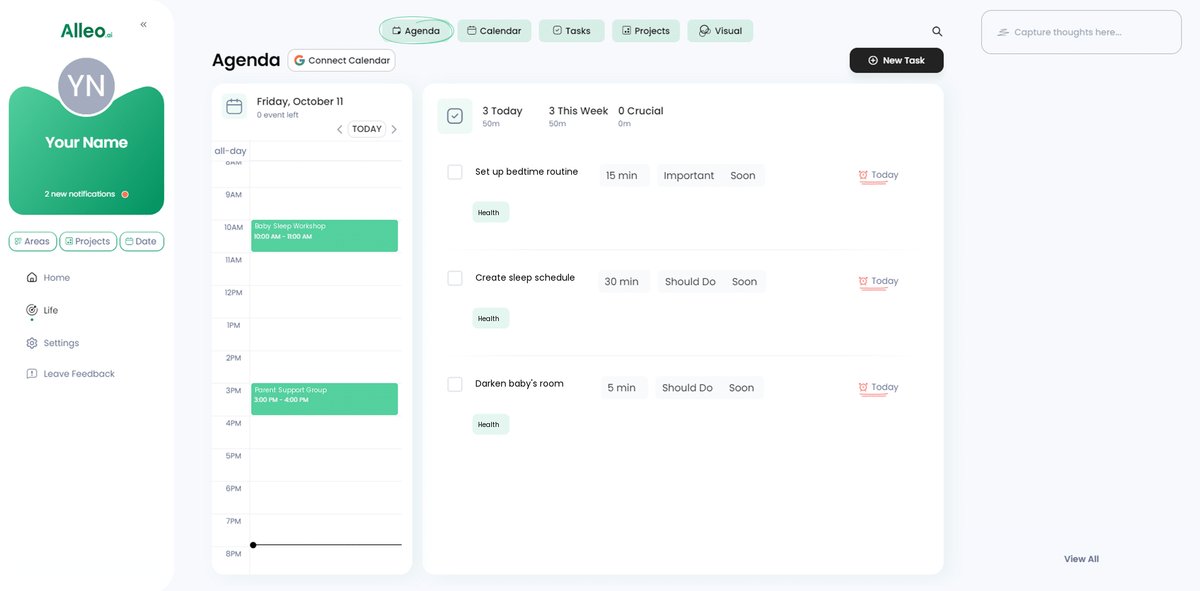Essential Sleep Tips for New Parents: Your Guide to Conquering Newborn Sleep Deprivation
Are you overwhelmed by sleep deprivation while caring for your newborn? Managing newborn sleep deprivation can be challenging for new parents.
As a life coach, I’ve helped many new parents navigate the exhausting journey of managing sleep disruptions and coping with sleep deprivation.
In this article, I’ll share actionable tips to help you and your baby get the rest you need, including sleep training for newborns and establishing a newborn sleep schedule.
We’ll cover strategies like:
- Establishing bedtime routines for your baby
- Napping strategies for parents when the baby sleeps
- Creating a sleep-friendly environment for newborn nighttime care
Let’s dive in to explore baby sleep patterns and postpartum fatigue management.

Understanding the Toll of Sleep Deprivation for New Parents
Managing newborn sleep deprivation is a common and challenging issue for new parents. Many parents struggle with exhaustion caused by their newborns’ irregular sleep patterns and baby sleep schedules.
Sleep disruptions can significantly affect your well-being and ability to care for your baby. In my experience, people often find that lack of sleep leads to increased stress and irritability, making coping with sleep deprivation difficult.
Moreover, sleep deprivation impacts your mental health, making it harder to cope with daily parenting demands and newborn nighttime care. It’s crucial to address this issue to improve both your and your baby’s quality of life.
Several clients report feeling overwhelmed and unable to manage their responsibilities effectively. This can lead to burnout and feelings of inadequacy, highlighting the importance of self-care for new parents.
To combat sleep deprivation, it’s essential to implement practical strategies like sleep training for newborns and seek support when needed. Addressing sleep issues early on can make a significant difference in your parenting journey and help with postpartum fatigue management.

A Roadmap to Manage Sleep Deprivation as New Parents
Managing newborn sleep deprivation requires a few key steps. Here are the main areas to focus on to make progress with your newborn sleep schedule:
- Establish a consistent bedtime routine: A regular bedtime helps your baby recognize sleep cues and aids in sleep training for newborns.
- Take turns with night feedings: Share nighttime duties to ensure each parent gets uninterrupted sleep, improving coping with sleep deprivation.
- Nap when the baby sleeps: Prioritize rest and take naps whenever your baby sleeps, following baby sleep patterns.
- Create a sleep-friendly environment: Optimize the baby’s sleep space and maintain a comfortable room temperature for effective newborn nighttime care.
- Seek help from family and friends: Build a support network for additional help with baby care, essential for postpartum fatigue management.
- Practice relaxation techniques before bed: Use mindfulness, gentle exercise, and limit stimulants to improve sleep quality as part of self-care for new parents.
Let’s dive in to explore these strategies for managing newborn sleep deprivation!

1: Establish a consistent bedtime routine
A consistent bedtime routine helps signal to your baby that it’s time to sleep, which can improve their sleep patterns and aid in managing newborn sleep deprivation.
Actionable Steps:
- Create a calming pre-bedtime ritual: Implement a routine that includes a warm bath, gentle massage, and reading a bedtime story as part of your newborn sleep schedule.
- Set a fixed bedtime: Choose a specific time each night for bedtime and stick to it. Use visual aids like dimming lights to signal the transition to bedtime, supporting your baby sleep patterns.
- Monitor and adjust: Track your baby’s sleep patterns and adjust the routine as needed to ensure it remains effective for managing newborn sleep deprivation.
Explanation: Establishing a consistent bedtime routine is crucial because it helps your baby recognize sleep cues and fosters better sleep habits, which is essential for sleep training for newborns.
According to Parents.com, consistent routines can significantly improve sleep quality for both the baby and parents, aiding in coping with sleep deprivation.
By creating predictability, you can ease your baby into sleep more smoothly and reduce nighttime awakenings, improving newborn nighttime care.
Key benefits of a consistent bedtime routine:
- Reduces bedtime stress for both baby and parents
- Improves overall sleep quality, helping with postpartum fatigue management
- Helps establish healthy sleep habits for the future
Implementing these steps sets the foundation for a restful night and prepares you for other strategies to manage sleep deprivation and enhance self-care for new parents.

2: Take turns with night feedings
Sharing nighttime feeding duties is crucial for managing newborn sleep deprivation and ensuring both parents get enough rest.
Actionable Steps:
- Create a schedule: Develop a night shift schedule with your partner, ensuring each gets uninterrupted sleep. Use a shared digital calendar to keep track of feeding times and responsibilities, helping establish a newborn sleep schedule.
- Express and store milk: If breastfeeding, express milk to allow your partner to handle some feedings. Store milk safely and educate your partner on how to warm and feed it to the baby, contributing to effective newborn nighttime care.
- Use technology: Utilize baby monitors and tracking apps to alert you when it’s your turn for a feeding. Set reminders on your phone to ensure timely feedings and help manage baby sleep patterns.
Explanation: Taking turns with night feedings is essential because it allows both parents to rest and recover. This shared responsibility can significantly reduce stress and improve overall well-being, aiding in coping with sleep deprivation.
According to Maine Breastfeeds, balancing feeding duties can help manage sleep cycles better and reduce parental exhaustion.
This approach helps you stay energized and attentive, making it easier to care for your baby effectively while managing newborn sleep deprivation.

3: Nap when the baby sleeps
Napping when your baby sleeps can help you regain energy and manage newborn sleep deprivation more effectively.
Actionable Steps:
- Prioritize rest: Make napping a priority over other household chores. Create a conducive nap environment by darkening the room and minimizing noise, similar to establishing bedtime routines for your newborn.
- Coordinate with your partner: Plan nap times with your partner to ensure someone is always available for newborn nighttime care. Communicate openly about your need for rest and support each other’s napping strategies for parents.
- Utilize short naps: Even 20-30 minute naps can significantly improve your alertness and mood when coping with sleep deprivation. Set an alarm to avoid oversleeping and feeling groggy.
Explanation: Prioritizing naps when your baby sleeps is crucial for maintaining your energy levels and overall well-being while managing newborn sleep deprivation.
According to Talkspace, making rest a priority is essential for managing the demands of parenting. Short naps can be surprisingly restorative and help you cope with the challenges of sleep deprivation and postpartum fatigue management.
Taking these steps will help you stay refreshed and better prepared for parenting tasks, including understanding baby sleep patterns and implementing sleep training for newborns.

4: Create a sleep-friendly environment
Creating a sleep-friendly environment is crucial for enhancing your baby’s sleep quality and ensuring they rest well, which is essential when managing newborn sleep deprivation.
Actionable Steps:
- Optimize the baby’s sleep space: Ensure the crib or bassinet is comfortable, safe, and free of distractions, supporting a newborn sleep schedule.
- Control light and temperature: Use blackout curtains to keep the room dark and maintain a comfortable temperature between 68-72°F (20-22°C), aiding in establishing bedtime routines.
- Introduce sleep aids: Introduce a consistent sleep aid, like a favorite blanket or toy, to help the baby feel secure and improve baby sleep patterns.
Explanation: Creating a sleep-friendly environment plays a significant role in improving your baby’s sleep patterns and overall well-being, crucial for coping with sleep deprivation.
According to AAP, optimizing the baby’s sleep space and controlling environmental factors can reduce nighttime awakenings and promote better sleep, which is vital for newborn nighttime care.
Implementing these steps will help your baby sleep more soundly, giving you much-needed rest as well, which is important for postpartum fatigue management.
Essential elements of a sleep-friendly environment:
- Comfortable and safe sleeping surface
- Optimal room temperature and lighting
- Minimal noise and distractions
By ensuring a conducive sleep environment, you set the stage for a more restful night for both you and your baby, supporting self-care for new parents while managing newborn sleep deprivation.

5: Seek help from family and friends
Seeking help from family and friends can significantly ease the burden of sleep deprivation when managing newborn sleep deprivation.
Actionable Steps:
- Identify potential helpers: Reach out to family members and friends who can assist with nighttime duties or daytime care for newborn sleep schedule management.
- Schedule regular assistance: Plan and communicate specific times when others can help with chores, meal prep, or baby sleep patterns monitoring.
- Join support groups: Engage in local or online new parent support groups to share experiences and find additional help for coping with sleep deprivation.
Explanation: Accepting help from your support network is crucial for managing sleep deprivation and maintaining mental health while dealing with postpartum fatigue management.
According to Williamsburg Therapy Group, building a support network can provide much-needed breaks and emotional support for self-care for new parents.
Utilizing these steps will help you stay rested and more effective as a parent while managing newborn sleep deprivation.
By leaning on your support network, you’ll better manage sleep deprivation and create a more balanced parenting experience, especially when it comes to newborn nighttime care.

Partner with Alleo to Manage Sleep Deprivation
We’ve discussed the challenges of managing newborn sleep deprivation as new parents and strategies to tackle it. But did you know you can work directly with Alleo to make this journey easier?
Getting Started:
- Set up an account: Sign up quickly with no credit card required for a free 14-day trial to start managing newborn sleep deprivation.
- Create a personalized plan: Alleo tailors a plan to your specific needs and schedules, including newborn sleep schedules and sleep training for newborns.
- Engage with your coach: Alleo provides full coaching sessions on coping with sleep deprivation, just like a human coach.
Ongoing Support:
- Track your progress: Alleo follows up on your progress in managing newborn sleep deprivation and adjusts plans as needed.
- Stay accountable: Receive reminders and notifications to keep you on track with baby sleep patterns and postpartum fatigue management.
- Get practical advice: Alleo offers actionable tips and support to manage sleep deprivation, including newborn nighttime care and self-care for new parents.
Ready to get started for free?
Let me show you how! Visit our website to begin your journey with Alleo today and start effectively managing newborn sleep deprivation.
Step 1: Create Your Alleo Account
Log in to your account or create a new one to start your journey towards better sleep management with Alleo’s personalized AI coaching.

Step 2: Choose “Building better habits and routines”
Select “Building better habits and routines” from the goal options to develop consistent sleep practices for you and your baby, directly addressing your sleep deprivation challenges and helping establish a more restful household routine.

Step 3: Select “Health” as Your Focus Area
Choose “Health” as your primary focus area in Alleo to address sleep deprivation, as improving your sleep habits and overall well-being is crucial for managing the challenges of new parenthood and ensuring better care for your baby.

Step 4: Starting a Coaching Session
Begin your journey to better sleep management with an initial intake session, where Alleo will gather information about your specific challenges as a new parent and create a personalized plan to help you overcome sleep deprivation.

Step 5: Viewing and managing goals after the session
After your coaching session on managing sleep deprivation, check the Alleo app’s home page to review and track the personalized goals you discussed, helping you stay on top of your sleep improvement plan.

Step 6: Adding events to your calendar or app
Use Alleo’s calendar and task features to track your progress in managing sleep deprivation by adding key events like bedtime routines, feeding schedules, and nap times, helping you stay organized and monitor improvements in your sleep patterns.

Wrapping Up: Empowering Yourself to Overcome Sleep Deprivation
By now, you’ve learned several strategies for managing newborn sleep deprivation as a new parent. From establishing a consistent bedtime routine to seeking help from family and friends, each tip is designed to help you and your baby get better rest and cope with sleep deprivation.
Remember, these changes won’t happen overnight, but small steps can lead to significant improvements in your newborn’s sleep schedule and your postpartum fatigue management.
Be kind to yourself. Parenting is challenging, and it’s okay to ask for help and take breaks. Self-care for new parents is crucial when dealing with newborn nighttime care.
If you need additional support in managing newborn sleep deprivation, Alleo is here to help.
Our AI life coach can guide you through this journey, offering personalized advice and practical solutions for sleep training for newborns and understanding baby sleep patterns.
Try Alleo for free today and start making positive changes for you and your baby’s sleep habits.